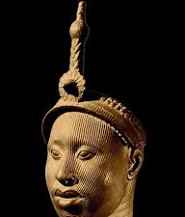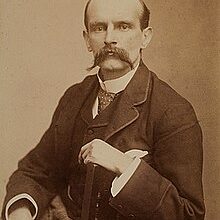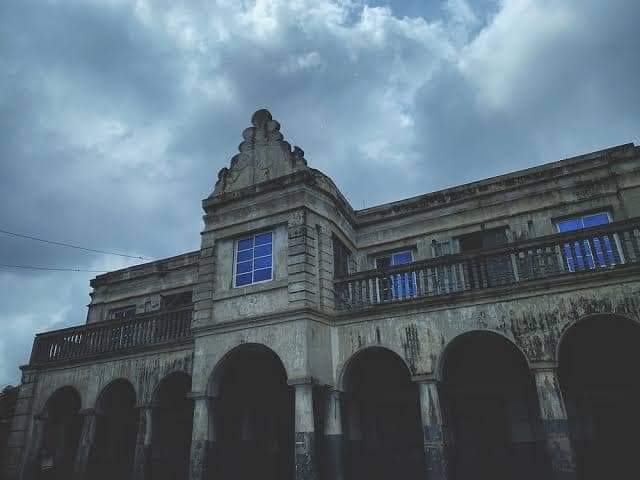
Irohinoodua Editorial, April 04, 2024
Afenifere is arguably one of the oldest political movements in Africa, born first as Egbe Omo Oduduwa, 33 years after the African National Congress,(ANC) was formed on January 8, 1912. If anything, the founding fathers wanted a movement of culture, politics and economy, driven by Yoruba civilisation in a country where violent culture of values has brought misery and agony to Yoruba Nation.
A Brief History Every Yoruba Must Know
The Egbe began in 1945 in London. The general meeting in Lagos was on May 18, 1948 where it raised £6000. Letters of support and solidarity came from Ooni of Ife, Oba of Bini, Akenzua 11, Olowo of Owo, Ewi of Ado-Ekiti, Olu of Warri and the Owa of Ijesaland, an indication that the movement covered all territories linked to Oduduwa.
The movement was born out of the growing nationalism in Nigeria in the early part of 19th century. The world had witnessed the first and the second world wars, then the depression of 1930-1938 meaning that raw material producers like Nigeria received less funds. By 1931 for instance, the total value of Nigeria’s exports was a paltry £17,000,000. In 1938, there were protests against the ‘Cocoa Pool’, an agreement by ten leading European firms exporting cocoa to control and manipulate the price against the toiling Yoruba farmers.
This brought uprising at home with focus on British administrators. Nigerians’ demand for freedom led by Yoruba nationalist, Herbert Macualey,Randle, Adeniji Jones became more pronounced. While the agitation for Nigerian independence was pioneered by Yoruba leaders, other ethnic groups were quick to organise themselves along their history and heritage except the Yoruba.
For instance, the first ethnic associations were Ibibio State Union (1928); Urhobo Progressive Union, (1931); Igbo Union, (1936) and the Tiv Progressive Union, (1938).
At this time, the Yoruba leaders focused on the liberation struggle of Nigeria from colonial rule. However, Chief Obafemi Awolowo and others while in London, noticed the agitations of Wales, Scotland and Ireland, and the emerging ethnic groups in Nigeria, and realised that if Europeans could seek nations based on distinct values,other ethnic groups in Nigeria also doing the same thing, the Yoruba should not be different.
It was obvious to him that post-independent Nigeria would be a fierce contest between the primordial ethnic nations. Even the British knew.British official, Hugh Clifford had described of Nigeria as ‘a collection of self-contained and mutually independent Native states separated from one another by vast distance, by differences of history and by ethnological, racial, tribal, political, social and religious barriers.’
Awolowo and others rose to the occasion to save Yoruba and Itsekiri nation. In 1945, the Egbe Omo Oduduwa was formed. Between June 4 and 6, the inauguration of the Egbe took place at Ile-Ife, the source of Oduduwa people all over the world. On that day, Sir Adeyemo Alakija, the first President of the Egbe addressed a big rally of traditional rulers and huge numbers of school children at Ile Ife and neighbouring towns, the strongest indication that the movement was for the past, present and the future generations.
A striking note from the constitution of the Egbe stated as its mission ‘to study fully its political problems, to plan for the rapid development of its political institutions and to accelerate the emergence of a virile modernised and efficient Yoruba state with its own individuality within the Federal State of Nigeria.’
Attacks against the Egbe
The Fulani and Igbo leaders opposed the Egbe. Dr Nnamdi Azikiwe actually set up a committee led by the Editor of West African Pilot to protest against the Egbe on January 17, 1948. Zik also set up a committee for Yoruba Federal Union to split the Egbe into two. Zik’s proposed Yoruba Federal Union was inaugurated on June 12, 1948 in Glover Memorial Hall, Lagos under the Chairmanship of Rev. J.O Lucas. Among the speakers were Azikiwe and Mbonu Ojike, who was General Manager of Ibo Federal Union and second Vive President of the NCNC. Zik and Ojike funded the Union to rival Egbe Omo Oduduwa, but he lost out as the Egbe gained momentum.
The Egbe saw fierce and ceaseless attacks from Dr Nnamdi Azikiwe who had established Igbo Federation Union in 1944.
Awolowo himself wrote ‘it seemed clear to me that his (Azikiwe) policy was to corrode the self-respect of the Yoruba people as a group; to build up the Ibos as a master race; to magnify his own vaunted contributions to the achievement of his contemporaries and to discount and nullify the humble but sterling quota which older politicians had made the country’s progress.’ However, the Egbe triumphed. It became better organised, well structured. It ser up cells in Sokoto, Onitsha, Port Harcourt, Kano, Kaduna and in Bini. It even paid a courtesy call on the Obi of Onitsha who told the Egbe his ancestors cake from Ile Ife through Benin. He donated to the Egbe. Afenifere also set up a school of leadership in Ibadan called Summer School, an indication of the high level of organisation of the group. Ironically, a good percentage of students that attended the Summer Leadership school were Igbo.
Egbe and Political Contests
The Egbe Omo Oduduwa was responsible for the formation of the Action Group, (AG), which transformed into Unity Party, (UPN) in 1978 and then Alliance for Democracy, (AD) in 1998.
Afenifere, Power, Politics and Responsibility
Afenifere, being the later day translation of the Yoruba political formations, that had existed in different forms, transformed Western Region including Delta and Edo States, in ways and manners never before seen: Free Education, Integrated Rural Development, Tallest Building in sub-Sahara Africa, first TV station in Africa, built one of the best Universities in the Commonwealth and created one of the most cultured and most principled human beings in the world until in recent times, that morality and principles have gone into the wind.
Afenifere under Chief Adekunle Ajasin led the Yoruba in bitter fight against military rule at a very great cost; led the tough battle against the late tyrant, General Sanni Abacha also at very great cost. Pa Ajasin and Pa Abraham Adesanya that succeeded him both died on the battle field for Oduduwa Nation and for humanity.
The Declining fortunes of Afenifere
No doubt, Afenifere had a charm grip on Yoruba people. The group was respected and adored if not worshipped, not for anything but for the moral and ethical high grounds of its leaders who never compromised on principles and never deviated from the core philosophy of defending and promoting the interest of Oduduwa people.
Pa Adesanya proved this further when his leadership won the entire South West states in 1999. Since then, Afenifere has continued to suffer misfortunes which many of its leaders are not ready to accept except for the stark reality that today, Afenifere can not boast of any State Governor or Senator that it can lay claim as its own.
Apart from losing political authority on its subjects, it has also lost moral authority on children of Oduduwa—Ooto oro ko ni ka ma so ohun. The truth is that Afenifere, while its principles are noble and desirable, today, the movement is like a beautiful, moral bride who suddenly has become an old harlot that allows herself to be literarily ganged raped, turning herself to turns of men left only with faint reference to the glory of her youthful, energetic years.
The reasons for Afenifere decline are obvious:
- The 1990s purging of the organisation was tactless. It led to the tactical exit of people like Chief Ayo Opadokun and the thick layers of younger elements that stood by him. The allegations against Opadokun were based on rumours and fuelled by the bitter power struggle within. He was not given a fair hearing. He was the storming petrel of the organisation and the bridge between the old and the young, not to talk of his vitality as a uniting force with Yoruba in Kwara and Kogi States. The vacuum he left cannot and has not been filled.
- The tactical exit of Chief Bola Ige left diminished the ideological content of the movement. The intellectual momentum of the organisation, its power to analyse issues critically before taking decisions, the network with the rural, young and ordinary street men and women was severed with the exit of Chief Ige whose brutal murder is yet to be resolved.
- Ironically, and something that hurts to the bone of Yoruba people, the Chief Presiding Officer of Nigeria when Ige was murdered, Chief Olusegun Obasanjo became the candidate of Afenifere in the 2007 elections. Astonished Yoruba people watched with disgust as another chief suspect became a prominent member of Afenifere and ate with the Afenifere royals on the graveyard of its former knight.
- Since its flirtation with President Obasanjo, an alliance that led to self-destruction-the AD woefully lost the entire South West except Lagos in the 2007 election-Afenifere thus became a promiscuous slot that has long lost its steam leaving the children of Oduduwa like a horde of ship without a shepherd.
- While Afenifere blamed some political figures for its demise, the truth is that its fall came out of its lack of perception and critical thinking by the new drivers steering its ship.
- Since the demise of Pa Adesanya, Afenifere in terms of organisation, membership drive, internal discipline, coordination and leadership strength has become a giant Iroko without roots. For instance, the Afenifere network with Itsekiri and Edo has been destroyed or mismanaged under its new leadership. How can Warri produce a King and at inauguration, Afenifere leaders were no where to be found?
- 70 years after, while the movement has many millionaires, it can not boast of a 3-bedroom flat as its office, lacks any research team and probably has no working document on modern theme of human development like Climate Change, AI, drug abuse, domestic violence, forest and indigenous rights, water resources in Oduduwaland and even documentation on violence especially herdsmen attacks on Yorubaland.
- The organisation even has no functional internet, no annual financial reports. Its strength only lay in mostly watery press statements that are completely detached from the spirit, fears and aspirations of the people.
Reactionary Infiltration
- Afenifere of today has been infiltrated by reactionary elements. In the Pa Adesanya years, it had started to assume a platform where people seeking electoral endorsement rush to take the anointing even coming from the devil’s workshop. In its new fold are found precursors of IDEMO whose grandparents tormented Awolowo and the Oduduwa nation. Some of these backward characters are the ones sitting as the new helmsmen in Afenifere of today assisting the organisation to take retrogressive and ill-informed positions on national issues while critical messages to the Yoruba people are sidelined and trampled upon.
- The elements are in Afenifere to settle political scores through wholesale and retail of vengeance, hate and avarice branding any genuine criticism as irresponsible.
The last Straw
- Two recent events lay a long stretch of wreath at the Afenifere lying-in-State. The first and most important is the abandoning of Yoruba interest for personal, often profit driven desires. This is linked to the emerging retail capital of some members of the group who place emphasis on electoral politics, material gains, than addressing burning issues that affect the Yoruba people.
- These are indicated in many ways: The bomb explosion saw no high powered delegation from Afenifere; the Owo bombing did not go beyond press statement, the attacks by violent groups on Yoruba and Itsekiri living in the North has led to deaths of Yoruba and Itsekiri people with many of them in IDPs.
- Afenifere has not visited any of these places and do not even have the figures. The killing of three traditional rulers in Yorubaland was not enough to attract Afenifere visits to these communities. Thanks to Papa Fasoranti for practical efforts by sending delegations to the communities in Ekiti and Kogi where the two Obas were killed and for sending a delegation to the North to meet some Yoruba leaders. These are promising but not enough steps.
The Second Error
- One of the worst mistakes of Afenifere led by Baba Ayo Adebanjo was to support a non-Yoruba in the 2023 Presidential and State Governorship elections.
- To the shock of many Yoruba people, Afenifere lend its lean weight in support of Mr Peter Obi of the Labour Party, (LP).
- The reality is that Obi has no progressive credentials and was infact one of the agents of late Sanni Abacha. Afenifere also supported the LP Lagos candidate, Gbadebo Rhodes, a man who cannot speak Yoruba and has no bearing with Yoruba civilisation neither was there any link between him and any progressive tradition either in the South West or in Nigeria.
- If Afenifere could put differences aside and supported Chief M.K.O Abiola in 1993, millions of Yoruba people could not understand the claim to false puritan posturing of Afenifere supporting Peter Obi in 2024.
- The position of Afenifere in 2023 completely destroyed the faint reputation left in the bowl, a harsh truth its leaders would detest and even protest against.
- What has given Afenifere relevance is the standing of Pa Fasoranti and his lieutenants like Mr Kole Omololu. This remains a fact. The outcome of the 2023 election was not just a vote of no confidence for Baba Adebanjo but a humiliation of his position on Yoruba interests in the 2023 election. Pa Fasonranti saved his own camp based on his position in 2023.
- While all the candidates in 2023 were not necessarily for the good of Yoruba in terms of their history, it would have been better for Afenifere to be neutral than to oppose its own former member.
What is to be Done?
- The challenges facing Yoruba Nation today is beyond what the shoulders of the current Afenifere can shoulder. Yoruba, forget about the fact that a Yoruba man is the President, faces extinction. The forests have been taken over by armed men; the quality of education of our children is without morality and culture, our streets are littred with violent cultism, the Nation is surrounded and infiltrated by armed terorrist cells amidst the prospect of a major conflict in Nigeria. Yoruba needs an organisation that is dedicated, structured with cells across the South West, built on the foundation of trust, truth, collective Yorub interest, and will cast in stone. The organisation must also be scientific and must be free of archaic approach to modern problems. It is the failure of Afenifere that produced so many organisations none of which has been able to meet expected standards.
- Afenifere may regain its completely lost glory if it can reenergise itself, reposition itself and repudiate its insistence on positions that are considered abhorrent in Yoruba social, cultural and political aspirations.
- The group is still relevant if only it can appreciate and understand the fears, needs and aspirations of Yoruba people within the limited stifling Nigerian space.
- It should embark on a scientific approach to be able to understand what Yoruba people expect through random sampling across Yoruba territories.
- Afenifere needs to source a secretariat, employ a full time administrative secretary and researchers, revive its structures in each Yoruba state, recruit younger men full of ideas and held by personal discipline instead of personal ambition, reconstruct a new network with Yoruba and Itsekiri at home and in Northern Nigeria and across West African coast and re-establish trust with Itsekiri and Edo.
- If Afenifere can listen to the people, its rich history, which no organisation has in Yorubaland today, will bounce back to be a huge asset rather than a burden on children of Oduduwa. However, if Afenifere remains recalcitrant, there are organisations that history will propel to push Afenifere away into the eternal cesspool of irrelevance.
Support Irohinoodua to continue to lead perspectives on Oduduwa issues. Donate and support us





